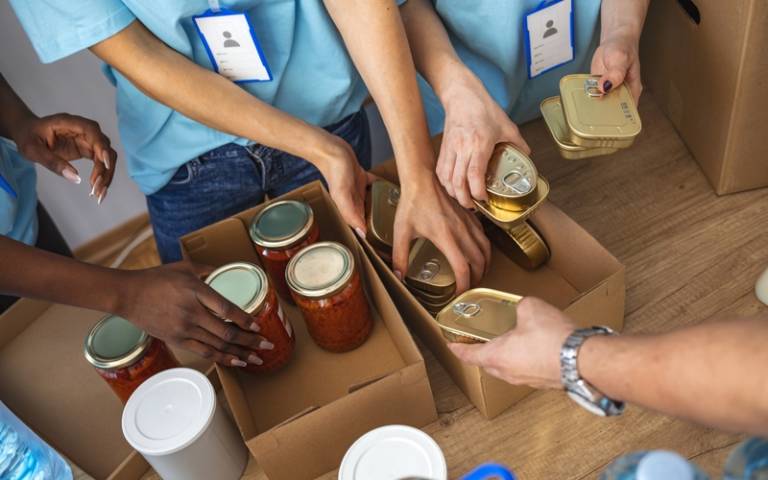The impact of financial hardship on food security in the UK
UCL Grand Challenge-funded researchers worked with The Trussell Trust to explore the use of food banks in the UK and the impact on the diet and health of those people needing to use them.

8 October 2020
In 2015, a UCL Grand Challenges of Human Wellbeing Small Grant enabled researchers Dr Angel Chater (UCL School of Pharmacy and University of Bedfordshire), Dr Edwina Prayogo (UCL School of Pharmacy), Professor George Grimble (UCL Division of Medicine), to investigate the causes and factors affecting food insecurity, and the impact of financial hardship on people’s health and wellbeing.
They collaborated with The Trussell Trust, the UK’s biggest Food Aid provider, and researchers at Bath and Southampton universities, to shed more light on who uses foodbanks and why. In 2015–16, the Trust distributed 1.1 million emergency food parcels and this number increased by 74% in the five years to 2020–21.
“The majority of people referred to food banks are single men and lone parents, with one in three having children at home,” says Edwina.
Single adults comprise a large proportion of food bank users, which may result from the gap between average unemployment benefits and the actual cost of living, leading many people to miss meals because they cannot afford basic necessities.
“Financial shocks, such as job loss, relationship breakdown or due to loss of or late payment of benefits, can push households into destitution and force people to choose between heating or eating,” she explains.
The researchers recommended that benefit delays should be minimised to reduce the risks of pushing those with existing financial strain into crisis.
For her PhD, Edwina went on to study the diet of people attending a food bank or local Advice Centre. “The majority of participants had a poor overall dietary pattern and food insecurity was the significant link between financial hardship and dietary quality,” she says. “This suggests that food insecurity should be addressed before any improvement in dietary quality will be seen.”
Professor Grimble adds: “This work was timely because the Covid-19 pandemic has seen a five- to tenfold increase in food bank attendance following increased unemployment. It gives us an idea of how to address the problem of acute severe food insecurity, which is now being experienced by many people for the first time ever in 2020.”
 Close
Close


